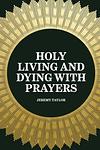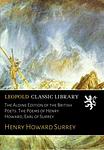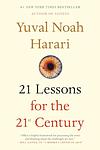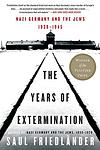The Greatest Israeli, English "Nonfiction" Books of All Time
Click to learn how this list is calculated.
This list represents a comprehensive and trusted collection of the greatest books. Developed through a specialized algorithm, it brings together 300 'best of' book lists to form a definitive guide to the world's most acclaimed books. For those interested in how these books are chosen, additional details can be found on the rankings page.
Genres
Countries
Date Range
Reading Statistics
Click the button below to see how many of these books you've read!
Download
If you're interested in downloading this list as a CSV file for use in a spreadsheet application, you can easily do so by clicking the button below. Please note that to ensure a manageable file size and faster download, the CSV will include details for only the first 500 books.
Download-
1. Sapiens: A Brief History of Humankind by Yuval Noah Harari
This book provides a comprehensive exploration of the history of the human species, tracing back from the earliest forms of Homo Sapiens to the modern day. It delves into evolutionary biology, the development of cultures and societies, and the rise of major ideologies and technologies. The book also discusses the future of the species, posing thought-provoking questions about our roles and responsibilities in a rapidly changing world.
-
2. Thinking, Fast and Slow by Daniel Kahneman
The book delves into the two systems that drive the way we think—System 1, which is fast and intuitive, and System 2, which is slow and deliberate. The author, a Nobel laureate, explores how these systems shape our judgments and decision-making. He presents several groundbreaking experiments that have shaped our understanding of human thought, revealing where we can trust our intuitions and how we can tap into the benefits of slow thinking. The book also discusses how our cognitive biases often lead to errors in judgment and affect our decision-making processes.
-
3. Holy Dying by Jeremy Taylor
The book in question is a Christian devotional work that explores the theme of death and the proper attitudes and practices one should adopt in preparation for it. It serves as a guide for the dying and those attending to them, offering theological reflections, moral instruction, and prayers intended to comfort and prepare souls for their final journey. The text emphasizes the transient nature of life, the importance of repentance, and the virtues of a holy life, aiming to provide readers with a sense of peace and a roadmap for achieving a blessed death in accordance with Christian teachings.
-
4. Homo Deus by Yuval Noah Harari
This book explores the future of humankind, building upon the foundation laid by its exploration of our past. It delves into the potential paths humanity might take as technological advancements and artificial intelligence begin to challenge the very essence of what it means to be human. The narrative posits that as we conquer famine, war, and plague, our focus shifts towards achieving happiness, immortality, and divinity, raising profound questions about our future roles and values in a world where machines and algorithms might outperform us in thinking, making decisions, and understanding the universe. Through a blend of philosophy, history, and future-gazing, the book invites readers to consider the implications of such a future, both exhilarating and daunting.
-
5. My Life by Golda Meir
The book is an autobiography of one of the most influential women in modern history, who rose from the poverty of her childhood in Russia and Milwaukee to become the Prime Minister of Israel. It offers a compelling account of her role in the founding of the state of Israel and its early years, providing personal insights into the myriad political and military challenges the nascent country faced. The narrative is interwoven with her own life story, including her experiences with immigration, education, and her rise through the ranks of the labor movement and political leadership, all set against the backdrop of the 20th century's tumultuous events leading up to and following the establishment of Israel.
-
6. Poems Of Henry Howard by Henry Howard
This collection is an assemblage of Renaissance poetry by an influential English nobleman, often credited with pioneering the use of the English sonnet form before Shakespeare. The poems reflect a range of themes, from romantic and courtly love to reflections on morality and the human condition, showcasing the poet's linguistic dexterity and deep engagement with the literary and cultural currents of his time. The work is notable for its early use of blank verse and for capturing the transition between the medieval world and the early modern era, offering insight into the intellectual and emotional landscape of the Tudor court.
-
7. Poems Of Nathan Zach by Nathan Zach
The book is a collection of poetry by an influential modern Hebrew poet, known for his innovative and modernist approach to language and form. The poems explore themes of identity, existentialism, and the human condition, often challenging traditional poetic structures and expectations. The poet's work is characterized by its lyrical intensity, intellectual depth, and a profound engagement with the cultural and historical landscape of his time. Through his verse, readers are invited to contemplate the complexities of individual experience within the broader context of collective memory and societal change.
-
8. Ecclesiastical History Of The English People by Bede
This book is a seminal historical work that chronicles the Christianization of the Anglo-Saxon tribes of England, spanning from the arrival of St. Augustine in Kent in 597 AD to the time of the author in the early 8th century. It combines theological discussion with historical narrative, detailing the rise of Christianity, the conflicts between the Roman and Celtic traditions, the lives of prominent saints, and the establishment of monastic centers. The author, a monk and scholar, uses a variety of sources to compile a history that is both a spiritual record and a valuable document of early English history, emphasizing the role of the church in unifying and educating the diverse peoples of England.
-
9. The Upside Of Irrationality by Dan Ariely
The book explores the counterintuitive ways that irrational behaviors shape our lives and influence our decisions, from the workplace to personal relationships. The author, a behavioral economist, uses a mix of experiments, case studies, and anecdotes to demonstrate how understanding these irrational forces can lead to better outcomes in various aspects of life. By examining topics such as the effects of high bonuses on performance, the motivations behind revenge, and the impact of adaptation on happiness, the book provides insights into how we can harness irrationality for positive change and improved decision-making.
-
10. 21 Lessons For The 21st Century by Yuval Noah Harari
This book navigates through the complexities and challenges of the 21st century, offering insightful analysis and thought-provoking lessons on various pressing issues such as technology, politics, religion, and education. The author delves into the impact of artificial intelligence and biotechnology, exploring how they are reshaping the world and questioning the future of humanity in this rapidly changing landscape. Through a series of compelling essays, the book encourages readers to reflect on the values, meaning, and personal engagement in a world full of noise and uncertainty, aiming to equip society with the understanding and wisdom to navigate the unknown future.
-
11. The Years of Extermination by Saul Friedlander
"The Years of Extermination" is a comprehensive historical analysis of the Holocaust, examining the genocide from 1939 to 1945. Drawing on a variety of sources, including diaries, letters, and firsthand accounts, it provides a detailed and harrowing account of the systematic extermination of the Jewish people during World War II. The book also explores the responses of various groups, including the Jewish communities in Europe, the international community, and the perpetrators themselves.
Reading Statistics
Click the button below to see how many of these books you've read!
Download
If you're interested in downloading this list as a CSV file for use in a spreadsheet application, you can easily do so by clicking the button below. Please note that to ensure a manageable file size and faster download, the CSV will include details for only the first 500 books.
Download









